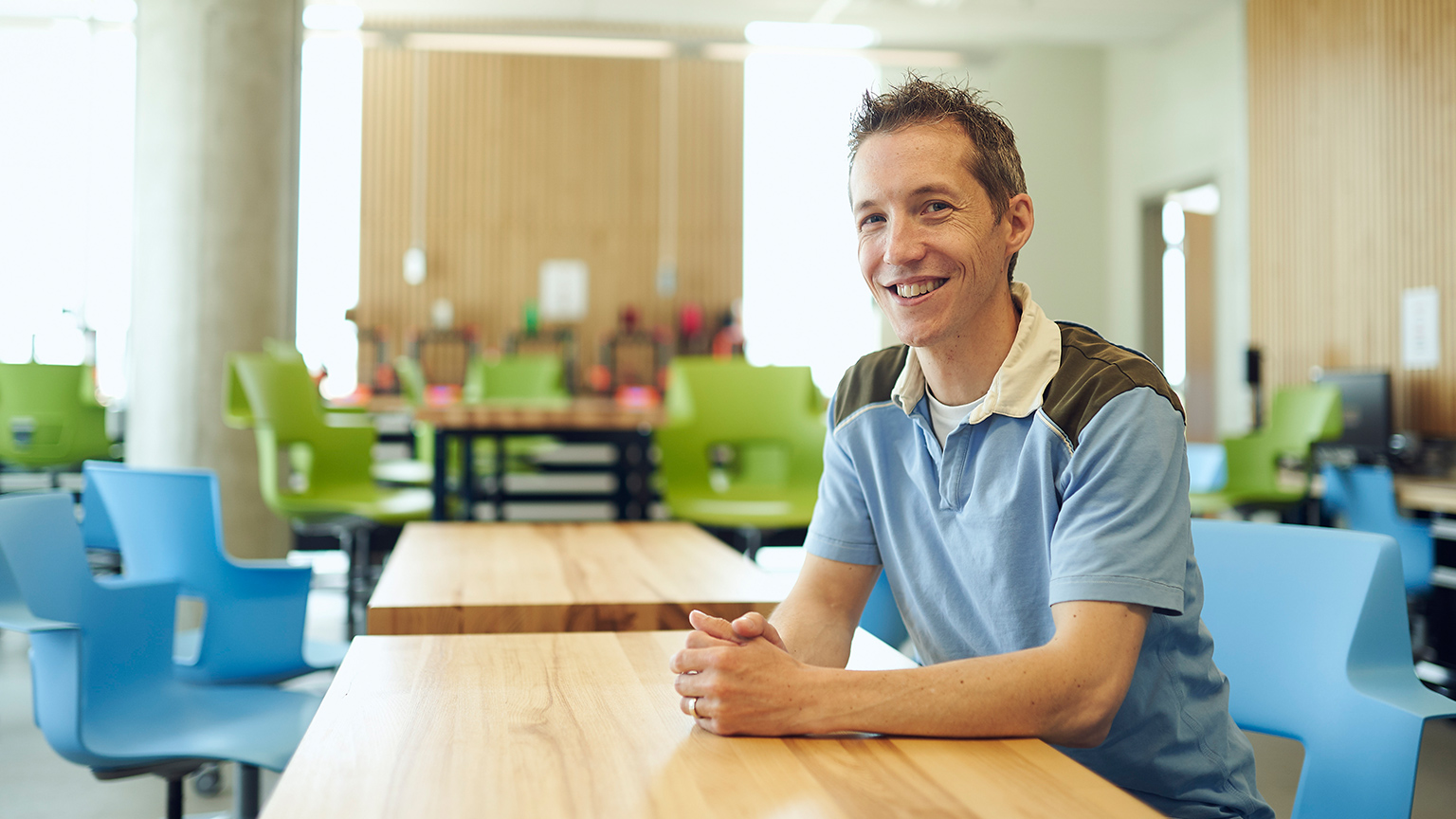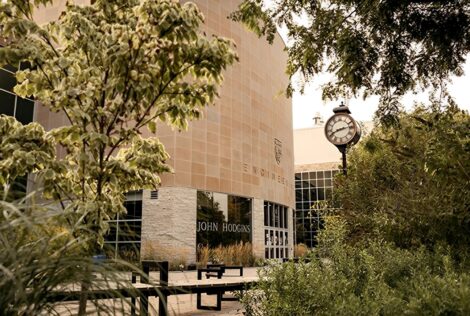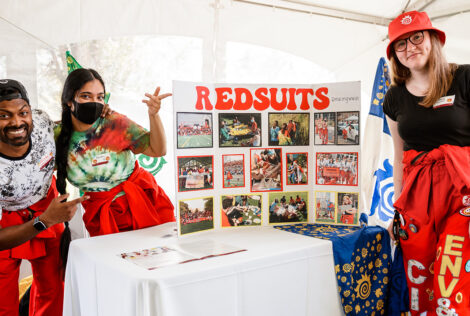

Colin McDonald has won the MacPherson 2020 President’s Award for Outstanding Contributions to Teaching and Learning.
This award recognizes the contributions of an individual’s collaboration to education through innovation, continued excellence in teaching, and enhanced student learning.
McDonald joined McMaster in 2013 and is currently the Associate Director of the Integrated Biomedical Engineering and Health Sciences (iBioMed) program and Assistant Professor with the Department of Mechanical Engineering. He received his Ph.D. in Biomedical Engineering from Western University.
Teaching Interests
“The foundations are set in their first year,” explains McDonald. “We’re preparing them to be experts in a particular area, but they still have to have that breadth of knowledge in other areas that is reflective of the real world.”
Graphics design, engineering design, and biomedical engineering are just a few of McDonald’s teaching interests. His current research interests are pedagogical with a focus on interdisciplinary education, project-based learning, experiential learning, and the development of tools to enhance the classroom experience and improve assessment and outcome measures.
His technical research interests are in the areas of biomechanics (upper extremity and spine), in-vivo joint kinematics, musculoskeletal imaging, and computer-guided surgery.
Experiential Learning
“The types of people who come out of Engineering 1 and iBioMed are people who can think critically. They’re people who, in a lot of cases, have been faced with challenges and sometimes fail. And I don’t mean failure in an academic sense. I mean if there is a project that they’re really interested in but it’s not going to work and they have to think about tweaking something or try something else.”
McDonald was instrumental in the development of IBEHS 1P10 Health Solutions Design Projects I, a first-year course unique to the iBioMed program. In teams, students collaborate on five different design projects throughout the year, each design project having different deliverables and requiring solutions to real world healthcare problems. Design projects range from designing hip implants to working with actual clients to develop accessibility solutions.
IBEHS 1P10 has also resulted in iBioMed students commercializing some of their designs and creating their own start-up companies.
New to all incoming Engineering 1 students this fall is the Integrated Cornerstone Design Projects in Engineering (1P13), a full-year course which combines an interactive Design Studio, labs and lectures delivered virtually. McDonald also played a key role in launching this course.
“We’re recreating the same type of experience that students would have if they were collaborating in a physical space, with close access to the expertise of the course instructional team.”
“Students will still learn and apply 3D design skills in CAD and will be able to send their designs to the instructional team for fabrication and evaluation at McMaster.”
Student Engagement
“I’m always thinking of better ways to engage my students.”
Any student who has attended their 1P10 lecture on March 14 (Pi Day) is always in for a big surprise; McDonald invites a couple of lucky students to throw a pie in his face during his lecture that day. He is also famous for conducting his lectures in full costume on Halloween.
Whether it’s with academic support, or engaging classroom activities, McDonald’s ability to create meaningful connections makes him a valued instructor among his students.
“From the perspective of a professor, I hoped that I was the smartest in the room. There is this perception that you need to be the smartest person in the room as a professor. And very quickly I realized that yeah, you know what? That’s not always the case. But to be the facilitator who can mentor and guide and show direction to the students, I think that’s what matters.”


